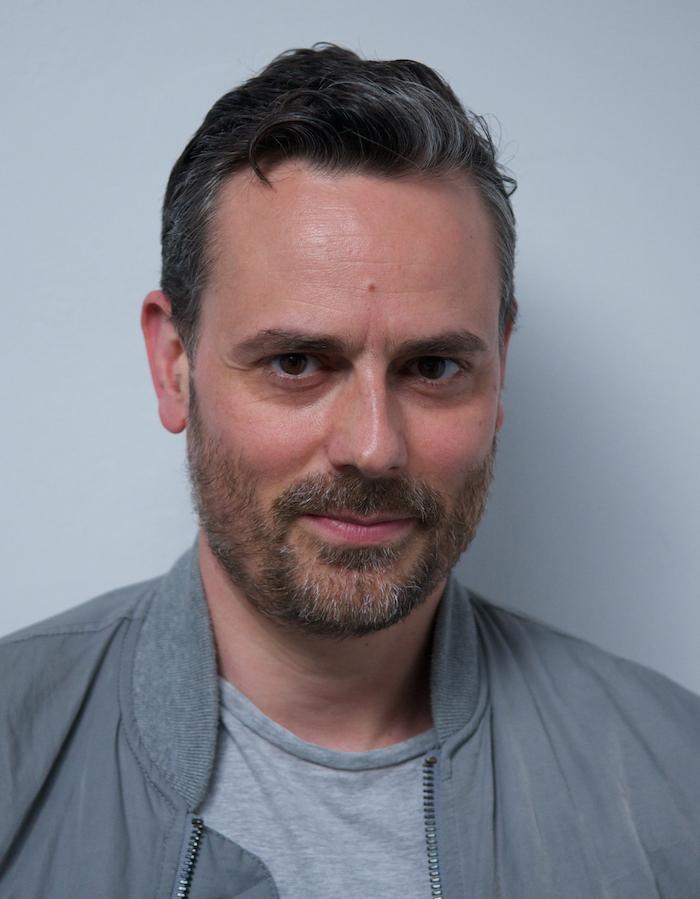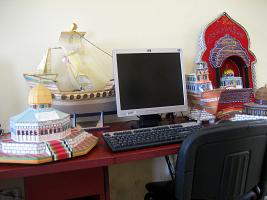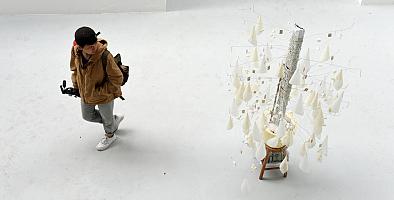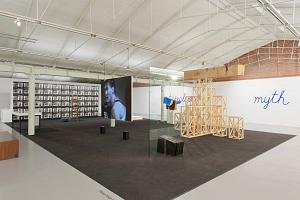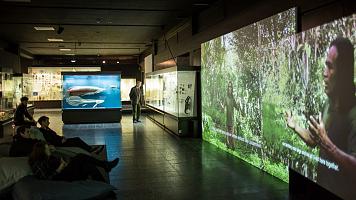MRes
Visual Cultures
Content navigation menu
Why study MRes Visual Cultures at Goldsmiths
The MRes Visual Cultures is ideal if you have already completed an advanced course of study in art history and theory but would like to further develop your thought and research projects before studying at MPhil/PhD level.
- This programme is for students who have a special interest in contemporary visual culture. It offers a challenging, flexible, and advanced scheme of study that explores a range of theoretical perspectives that shape attitudes towards visual culture understood globally in the late 20th and early 21st century.
- The MRes qualifies you to carry out higher research, but is also a degree in its own right and can be tailored to suit your requirements.
- Invigorated by current research, the programme encourages students to engage in an exploratory interrogation of the relationships between critical theory and visual practice understood broadly.
Contact the department
If you have specific questions about the degree, contact Dr Louis Moreno.
Length
1 year full-time or 2 years part-time
Fees
Home - full-time: £9630
Home - part-time: £4815
International - full-time: £17690
Department
What you'll study
Students on the MRes Visual Cultures follow a taught programme consisting of two modules:
- The MPhil-Phd Seminar
- One MA Special Subject
The MPhil-PhD Seminar explores the practical and intellectual demands of carrying out advanced research in visual culture from a variety of perspectives, drawing both on the expertise and experience of colleagues and from key theoretical texts. It also explores the current research of first-year MPhil students. It is in this context that you will outline orally the questions, context, methodology, and structure of your future dissertation.
You are also expected to attend the regular Visual Cultures Public Programme. These events give you the chance to participate in discussing the current work of different theorists, artists, curators and critics, as well as watch and discuss emergent and classic artists’ films and video.
The MA Special Subjects are based on the current research interests of staff and enable you to focus on an aspect of contemporary art, cultural theory or contemporary thought that particularly interests you.
How you'll be assessed
You'll be assessed via thesis, viva voce, oral presentation, and essay(s)/project(s).
Careers
MRes students graduating from the Visual Cultures Department go on each year to undertake research degrees in art history, visual culture, cultural studies, performance studies, philosophy and related subjects both in the UK and abroad.
Others find employment – again both here and abroad – in the spheres of arts administration, curating, teaching, arts journalism, community arts projects and other museums and galleries work.
Some students opt to do a PGCE and go on to teach art/art history in schools and further education colleges.
In this way, the department’s MRes provision provides for pathways into many institutions of contemporary art and culture at various different levels.
Fees and funding
Annual tuition fees
These are the PG fees for students starting their programme in the 2024/2025 academic year.
- Home - full-time: £9630
- Home - part-time: £4815
- International - full-time: £17690
If your fees are not listed here, please check our postgraduate fees guidance or contact the Fees Office, who can also advise you about how to pay your fees.
It’s not currently possible for international students to study part-time under a student visa. If you think you might be eligible to study part-time while being on another visa type, please contact our Admissions Team for more information.
If you are looking to pay your fees please see our guide to making a payment.
Funding opportunities
You may be eligible for the following funding:
Paying your fees
Find out about paying your tuition fees.
Additional costs
In addition to your tuition fees, you'll be responsible for any additional costs associated with your course, such as buying stationery and paying for photocopying. You can find out more about what you need to budget for on our study costs page.
There may also be specific additional costs associated with your programme. This can include things like paying for field trips or specialist materials for your assignments. Please check the programme specification for more information.
Entry requirements
You should normally have (or expect to be awarded) an undergraduate degree of at least upper second class standard in a relevant subject.
You might also be considered for some programmes if you aren’t a graduate or your degree is in an unrelated field, but have relevant experience and can show that you have the ability to work at postgraduate level.
International qualifications
We accept a wide range of international qualifications. Find out more about the qualifications we accept from around the world.
If English isn’t your first language, you will need an IELTS score (or equivalent English language qualification) of 6.5 with a 6.5 in writing and no element lower than 6.0 to study this programme. If you need assistance with your English language, we offer a range of courses that can help prepare you for postgraduate study.
How to apply
You apply directly to Goldsmiths using our online application system.
To complete your application, you will need to have:
- Details of your academic qualifications, including the dates of all exams/assessments
- The email address of your referee who we can request a reference from, or alternatively a copy of your academic reference
- Contact details of your second referree
- Copies of your educational transcripts or certificates
- A personal statement
- Details of your research proposal
You'll be able to save your progress at any point and return to your application by logging in using your username/email and password.
Before you apply for a research programme, we advise you to get in touch with the programme contact, listed above. It may also be possible to arrange an advisory meeting.
Before you start at Goldsmiths, the actual topic of your research has to be agreed with your proposed supervisor, who will be a member of staff active in your general field of research. The choice of topic may be influenced by the current research in the department or the requirements of an external funding body.
If you wish to study on a part-time basis, you should also indicate how many hours a week you intend to devote to research, whether this will be at evenings or weekends, and for how many hours each day.
Research proposals
Along with your application and academic reference, you should also upload a research proposal at the point of application.
This should be in the form of a statement of the proposed area of research and should include:
- Delineation of the research topic
- Why it has been chosen
- An initial hypothesis (if applicable)
- A brief list of major secondary sources
When to apply
We accept applications from October for students wanting to start the following September.
We encourage you to complete your application as early as possible, even if you haven't finished your current programme of study. It's very common to be offered a place conditional on you achieving a particular qualification.
If you're applying for external funding from one of the Research Councils, make sure you submit your application by the deadline they've specified.
Selection process
Once we receive your application form, it is forwarded to the Postgraduate Convenor, who normally sets up a formal interview with two other members of staff with relevant expertise. You may wish to contact the convenor as well.
At the interview you will be asked about your academic background and to elaborate on your plans for research, and you can also ask questions.
Further guidance
Read our guide to applying for a postgraduate degree at Goldsmiths.
